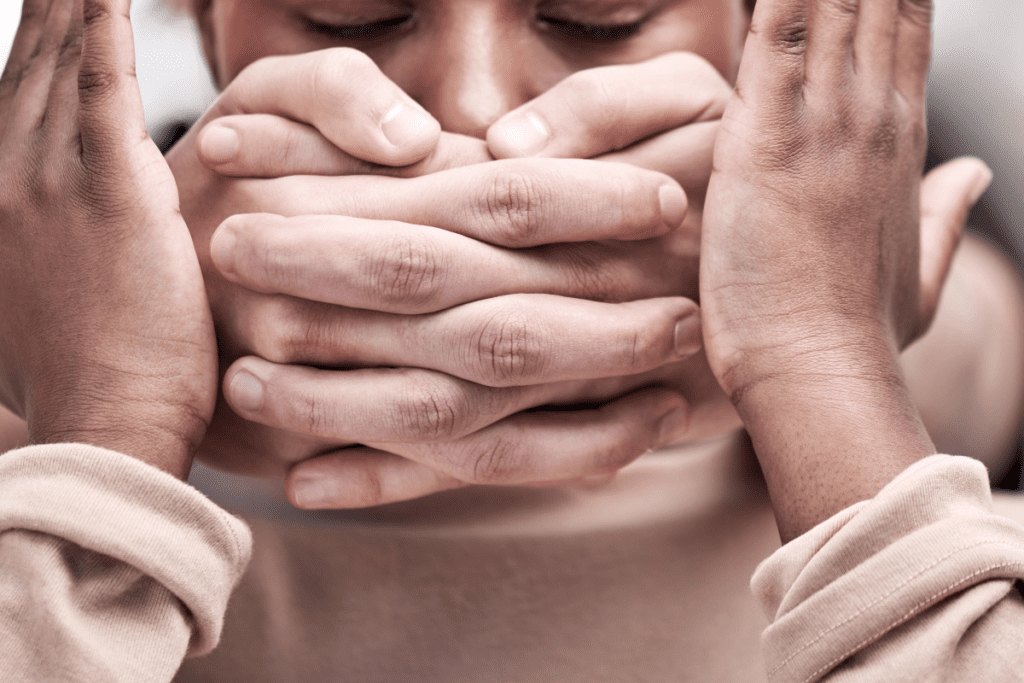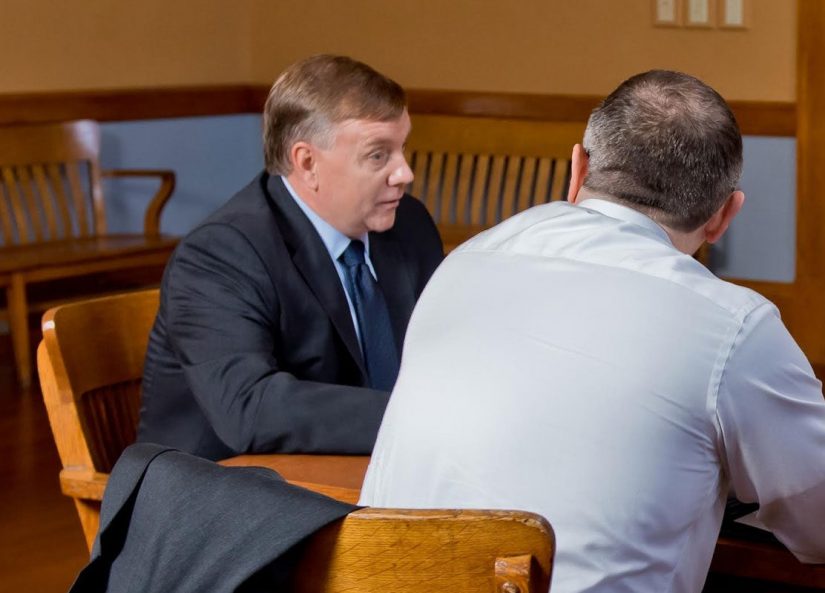Collect any documentation related to your experience, including receipts, hotel records, witness statements, and visual evidence (such as photos or videos). This evidence can be critical in supporting your claim.
The Carlson Law Firm secures $1.5 million settlement for client who suffered serious injuries in an Austin car accident. |
Home - Hotel Human Trafficking

Holding hotels accountable for human trafficking cases is possible through federal and state laws, including the Trafficking Victims Protection Act (TVPA). This law enables victims to seek justice by filing civil lawsuits if a business knowingly benefits financially from trafficking activities on its property. In cases against hotels, plaintiffs argue that hotels turned a blind eye, despite obvious signs of trafficking. By showing that hotels failed to intervene or implement policies to detect trafficking, victims can hold these establishments liable for negligence, ensuring they bear responsibility for safeguarding guests.
Lawsuits against hotels often argue that inadequate anti-trafficking measures contributed to victims’ suffering. Effective protocols, such as comprehensive training, alert systems, and monitoring suspicious activity, were often lacking. Many hotel chains are accused of failing to detect obvious trafficking indicators: unusual check-in behaviors, guests showing signs of distress, and frequent room changes. In some cases, staff reportedly witnessed or became aware of concerning behaviors but had no procedures or guidelines to act upon. These failures point to a lack of oversight and a focus on occupancy over guest safety, leaving victims vulnerable and enabling traffickers.
By suing hotel chains, survivors and advocates aim to force industry-wide changes, ensuring that anti-trafficking protocols become a standard practice. Enhanced policies would help employees identify warning signs and act immediately to protect guests, ultimately shifting hotels toward a more safety-focused approach that prioritizes preventing exploitation.
Many survivors have filed lawsuits against prominent hotel brands, with cases alleging widespread negligence in identifying and addressing trafficking. Below is an overview of hotel chains commonly cited in these lawsuits, some of which have led to settlements or are pending further action:
Each of these lawsuits sends a powerful message to the hospitality industry: hotels must be proactive in combating trafficking, enforcing staff training, and creating an environment where guest safety is a priority. These cases are not just about financial restitution but are also pivotal in driving systemic change and implementing preventative policies that could protect future victims from exploitation.
Lawsuits claim hotels failed to recognize or respond to signs of trafficking, with accusations that staff ignored red flags like frequent room changes and distressed guests.
Some hotels have settled cases, pushing for stricter anti-trafficking policies, improved staff training, and a greater focus on guest safety across the industry.
Some hotels have settled cases, pushing for stricter anti-trafficking policies, improved staff training, and a greater focus on guest safety across the industry.
These notable cases involving hotel chains accused of negligence in human trafficking incidents, underscore the importance of contacting a Hotel Human Trafficking Attorney to assist with your claim.
If you have been a victim of human trafficking that occurred on hotel premises, you may have grounds for a hotel human trafficking lawsuit. Victims who file these lawsuits often seek compensation for physical, emotional, and financial damages. A successful claim can also include punitive damages aimed at deterring hotels from continuing negligent practices.

If you believe you are eligible for Human Trafficking Lawsuit against a hotel chain, follow these steps:
Collect any documentation related to your experience, including receipts, hotel records, witness statements, and visual evidence (such as photos or videos). This evidence can be critical in supporting your claim.
Contact an attorney who specializes in human trafficking cases and understands the Trafficking Victims Protection Act (TVPA) and other relevant laws. A lawyer can assess your eligibility and guide you on the legal steps to take.
Your attorney can help you file a claim under the Trafficking Victims Protection Act or applicable state laws, which hold hotels liable if they profited from trafficking activities on their properties. This step can lead to compensation for damages and contribute to industry reforms.
A lawsuit can take time, so staying informed on the progress and maintaining communication with your attorney can help you manage expectations and be prepared for each stage.
Throughout your legal journey, it’s important that you stay safe and prioritize your own health. Contact advocacy or support groups dedicated to trafficking survivors. During this time you can seek treatment for counseling for your healing and closure journey.
If you believe you are eligible for a hotel human trafficking lawsuit, acting quickly can be crucial to protecting your rights and building a strong case. Evidence and memories are often strongest soon after the incident, making timely action essential. Hotel records, surveillance footage, and witness testimonies can become harder to obtain as time passes, and details may fade. Additionally, statutes of limitations apply to trafficking cases, meaning there’s a limited window in which you can file a claim. Acting promptly ensures your case is documented thoroughly, increasing your chances of holding responsible parties accountable and achieving justice.


In a hotel human trafficking lawsuit, survivors may be eligible for several types of compensation aimed at addressing the financial, emotional, and physical harm caused by trafficking. Potential compensation can include:

We operate on a contingency fee model, ensuring that our clients face no upfront costs or hourly charges. We are solely rewarded based on the success we achieve for you. It’s straightforward: we only receive compensation if your case is won.
The amount of compensation for a hotel human trafficking lawsuit varies widely based on factors like the specific circumstances of the case, the extent of harm suffered, and the evidence available. Settlements and awards have ranged from tens of thousands to millions of dollars. Here’s a breakdown of what might influence the compensation amount:
For specific cases, settlements and verdicts can vary widely. Some notable cases have resulted in multimillion-dollar settlements, but each case is unique. Consulting with an experienced attorney can provide a clearer estimate based on the details of your situation.
If you believe you have grounds to file a hotel human trafficking lawsuit, taking the following steps can help you navigate the process effectively:
Taking these steps ensures your case is handled professionally, allowing you to pursue justice and help bring about change in the hospitality industry.
A hotel human trafficking lawsuit typically takes between 1 to 3 years to resolve, though this varies based on case complexity, available evidence, and whether a settlement is reached or the case proceeds to trial. Many cases settle before trial, which can shorten the timeline, while others may take longer if they involve extensive evidence and pre-trial processes.
In general, if the cases are part of a multidistrict litigation (MDL), like the ongoing Suboxone tooth decay MDL, the process can take several years. This is due to the time needed for gathering evidence, conducting discovery, and preparing for potential trials. Some cases could settle within a year or two if settlements are reached early, while others might take longer, especially if the defendant contests the claims or if trials are necessary.
For individual plaintiffs not part of an MDL, the timeline can also be affected by the specific circumstances of the case, such as the strength of the evidence and the legal strategy of both parties. It’s important to work closely with a lawyer to understand the specifics of your case and get a more accurate estimate.
There are numerous hotel human trafficking lawsuits due to hotels’ alleged negligence in identifying and preventing trafficking activities on their properties. Hotels are common venues for trafficking because they provide privacy, anonymity, and frequent guest turnover. Many lawsuits argue that hotel chains ignored obvious signs of trafficking, such as guests appearing distressed, frequent room changes, or irregular payments, and failed to train staff to detect and report these signs. As awareness of trafficking grows, survivors are increasingly seeking justice under laws like the Trafficking Victims Protection Act, holding hotels accountable to drive systemic change in the industry and improve safety for guests.
Individuals who were trafficked or exploited on hotel properties where staff failed to intervene despite signs of trafficking.
Family members or guardians who may be seeking justice on behalf of a loved one affected by trafficking in hotels, especially if the survivor cannot pursue the case directly.
Witnesses or former hotel employees who observed trafficking or inadequate action can provide valuable insights and testimony about the hotel’s practices and failures to prevent trafficking.
Contact us at 866-779-0356 for a free consultation where our team can answer your questions and help ease your concerns. We have extensive experience dealing with major corporations who are complicit in the victimization of the abused.

With over a dozen locations throughout Texas, there’s a Carlson Law Firm near you. We have law offices located in Killeen, Temple, Waco, Round Rock, Austin, San Antonio, Kerrville, Laredo, Bryan, Lubbock, Midland, and Corpus Christi.
100 E. Central Texas Expy
Killeen, TX 76541
(254) 526-5688
11606 N. I-35
Austin, TX 78753
(512) 346-5688
135 W. Slaughter Ln, Ste A
Austin, TX 78748
(512) 804-7277
6243 I-10 #550
San Antonio, TX 78201
(210) 696-8600
618 SW Military Dr.
San Antonio, TX 78221
(210) 923-7700
1109 W. Baker Road, Ste A
Baytown, TX 77521
(832) 806-6155
1121 Briarcrest Drive, Ste 200
Bryan, TX 77802
(979) 260-5688
653 Everhart Rd, Ste 105
Corpus Christi, TX 78411
(361) 336-3317
301 Junction Highway, Ste 100
Kerrville, TX 78028
(830) 257-7575
5112 McPherson, Ste 106
Laredo, TX 78041
(956) 712-2588
10101 Quaker Ave
Lubbock, TX 79424
(806) 401-0500
900 Lp 250 Frontage Rd b
Midland, TX 79705
(432) 247-6611
1717 N. I-35 Ste 305
Round Rock, TX 78664
(512) 671-7277
4282 S Jackson St.
San angelo, TX 76903
(325) 238-4322
2010 SW H K Dodgen Loop, Ste 201
Temple TX 76504
(254) 771-5688
2420 I-35 South
Waco, TX 76706
(254) 772-5653
2909 Garnett Ave
Wichita Falls, TX 76308
(940) 285-6333
1500 Rosecrans Ave Ste 500
Manhattan Beach, CA 90266
(254) 516-3570
33rd Ave N Ste 220
St. Petersburg, FL 33701
(727) 373-4655
100 E. Central Texas Expy
Killeen, TX 76541
(254) 526-5688
11606 N. I-35
Austin, TX 78753
(512) 346-5688
135 W. Slaughter Ln, Ste A
Austin, TX 78748
(512) 804-7277
6243 I-10 #550
San Antonio, TX 78201
(210) 696-8600
618 SW Military Dr.
San Antonio, TX 78221
(210) 923-7700
1109 W. Baker Road, Ste A
Baytown, TX 77521
(832) 806-6155
1421 S Main St. Ste 113
Boerne, TX 78006
(830) 470-8777
1121 Briarcrest Drive, Ste 200
Bryan, TX 77802
(979) 260-5688
653 Everhart Rd, Ste 105
Corpus Christi, TX 78411
(361) 336-3317
5112 McPherson, Ste 106
Laredo, TX 78041
(956) 712-2588
10101 Quaker Ave
Lubbock, TX 79424
(806) 401-0500
900 Lp 250 Frontage Rd b
Midland, TX 79705
(432) 247-6611
559 S I-35 Frontage Rd Ste 250,
Round Rock, TX 78664
(512) 671-7277
4282 S Jackson St.
San angelo, TX 76903
(325) 238-4322
2010 SW H K Dodgen Loop, Ste 201
Temple TX 76504
(254) 771-5688
2420 I-35 South
Waco, TX 76706
(254) 772-5653
2909 Garnett Ave
Wichita Falls, TX 76308
(940) 285-6333
1500 Rosecrans Ave Ste 500
Manhattan Beach, CA 90266
(254) 516-3570
4700 Millenia Blvd. STE 500
Orlando, FL 32839
(727) 373-4655